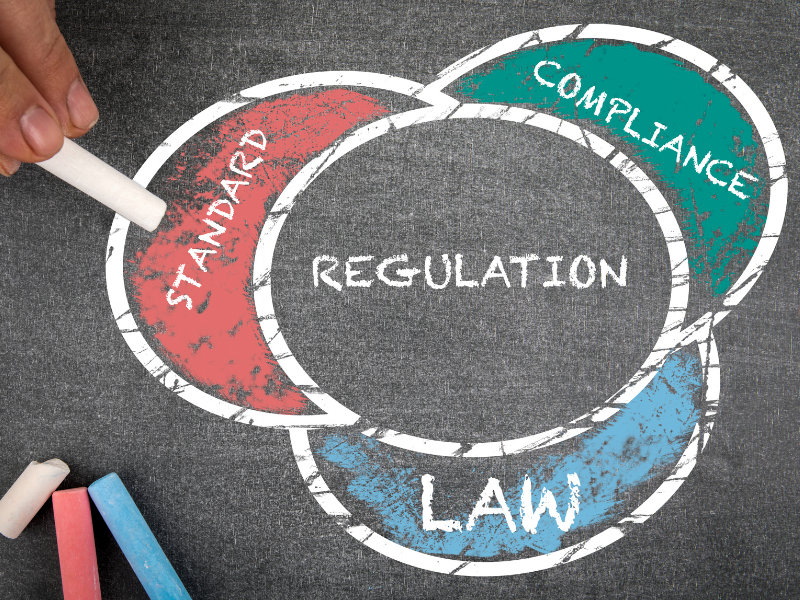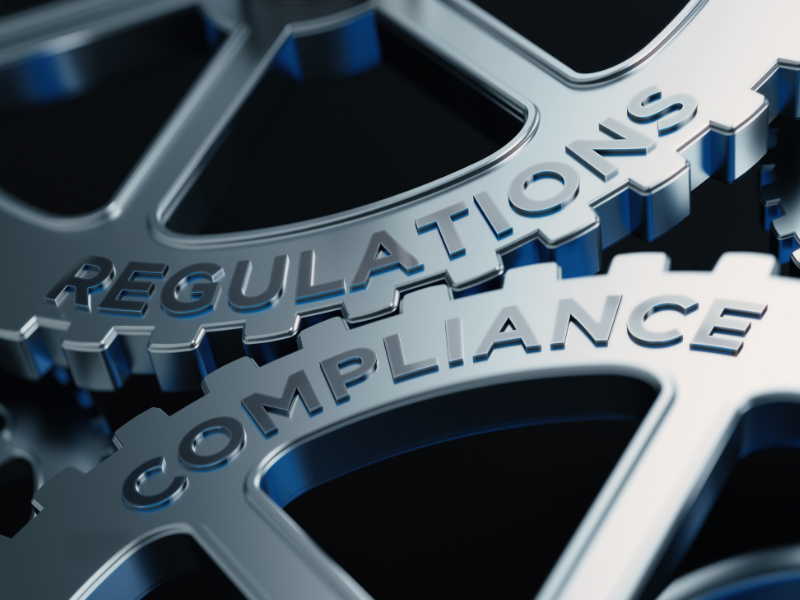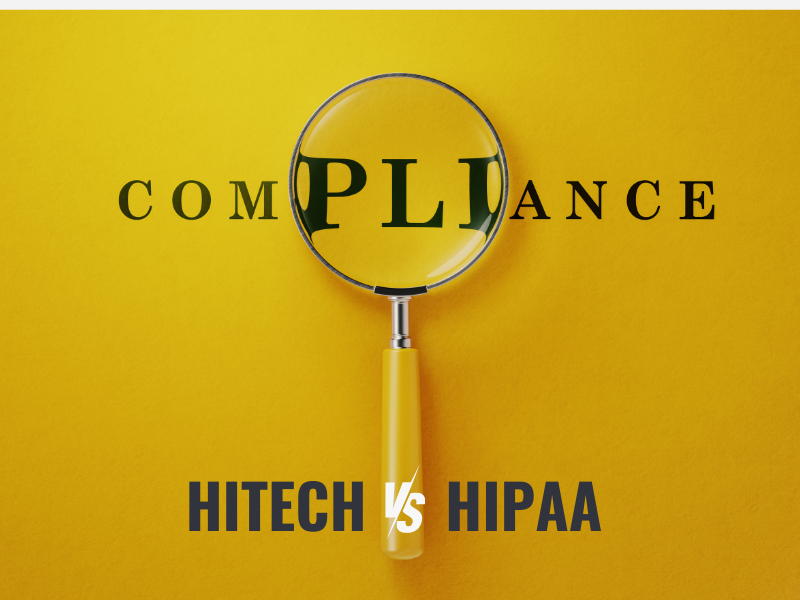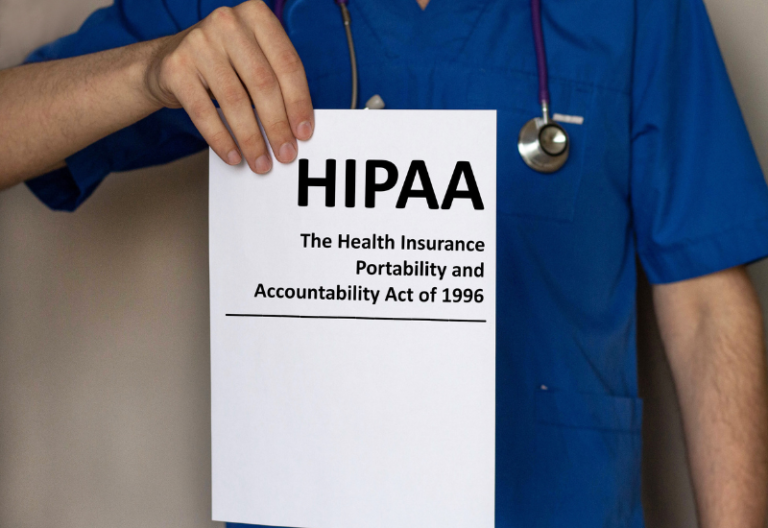Healthcare organizations, like other industries, must also adhere to specific regulations and compliance requirements. Two of these regulations, HITECH and HIPAA, are critical in ensuring that sensitive healthcare data remains safe.
Let’s explore what makes HIPAA different from HITECH and why your organization should focus on both.
Table of Contents

HITECH and HIPAA Comparison
Under the authority of the US Congress, the US Department of Health and Human Services (HHS) implements and enforces HIPAA and HITECH regulations or rules.
HIPAA, or the Health Insurance Portability and Accountability Act, was signed into law by President Bill Clinton in 1996, setting the guidelines for safeguarding protected health information (PHI). HIPAA established standards for healthcare data privacy and security, including electronic PHI. Its goal is to ensure that PHI remains confidential, complete, accurate, and accessible.
Meanwhile, the Health Information Technology for Economic and Clinical Health Act, or HITECH, was signed into law by President Barack Obama on February 17, 2009. It was a key component of the American Recovery and Reinvestment Act of 2009 (ARRA). HITECH gave HHS the authority to create healthcare programs by promoting health information technology. It also introduced several changes to HIPAA.

HIPAA vs HITECH Compliance: Key Differences
HITECH and HIPAA are closely related federal laws that aim to protect health information. However, the main difference between HITECH and HIPAA lies in their components.
Purpose
HITECH aims to encourage the implementation and meaningful use of health information technology. The American Medical Association Journal of Ethics explains that HITECH incentivizes eligible professionals for the “meaningful use” of health IT, health information exchanges, and health education. For instance, physicians and hospitals are given financial rewards for adopting certified EHR technology. Meaningful use is based on a set of criteria determined by the HHS.
An article published by Baylor University Medical Center emphasizes that HIPAA rules primarily protect healthcare coverage for individuals who lose or change their jobs. Moreover, it requires the healthcare industry to improve its efficiency by using electronic media to transmit administrative data. The United States government created the HIPAA Privacy and Security rules since the public might not be comfortable with electronic transmissions.
Scope
HIPAA rules regulate the use of and disclosure of PHI and electronic PHI (ePHI). Initially, it applied to covered entities, which include healthcare providers, health plans, and healthcare clearinghouses. Healthcare providers are those who transact billing and payment for services and insurance.
When HITECH was enacted, business associates of covered entities also became liable under HIPAA. HHS’ Direct Liability of Business Associates shows that the HHS issued a HITECH final rule in 2013. The rule modified HIPAA to include business associates, referring to those creating or receiving PHI on behalf of covered entities. The law also covered the subcontractors of business associates.
Penalties
The HIPAA Journal shows that penalties for HIPAA violations were relatively minor, amounting to a mere symbolic gesture of reprimand ($100 per violation, capped at $25,000). HITECH introduced stiffer penalties, splitting them into tiers based on levels of culpability.
Moreover, HITECH added a provision to HIPAA penalties. Under this act, individuals affected by the violation are allocated a certain percentage of the penalties. This provision recognizes the individuals affected by the breach.

HIPAA and HITECH Compliance
There is no official certification for HIPAA and HITECH compliance that the HHS recognizes. However, organizations often engage third-party firms specializing in healthcare compliance and information security to conduct assessments.
Organizations can also use the NIST HIPAA Security Toolkit Application to conduct HIPAA risk assessments. This guide will help them assess if they comply with HIPAA administrative, physical, and technical safeguards.
Moreover, healthcare organizations should always use HIPAA-compliant software. Several software vendors offer to sign a business associate agreement (BAA) to prove their compliance. If you use internet fax, EHR, EMR, practice management platforms, and any other software handling ePHI, make sure it’s willing to sign a BAA.
Navigating HITECH and HIPAA Compliance Challenges
When comparing HIPAA vs HITECH data regulations, it’s crucial to understand that both laws protect individual data privacy. However, their difference lies in several aspects. First, they have different goals. Additionally, HITECH introduced improvements to HIPAA. The act emphasized that secure health data exchange is vital by imposing stiffer penalties, widening its scope to include business associates and subcontractors, and adding a provision to compensate individuals affected by a PHI privacy breach.
HIPAA and HITECH rules may seem complicated to follow for health organizations. However, they enable covered entities and business associates to adopt useful technology while ensuring that data remains secure. Implementing HIPAA and HITECH-compliant software and processes helps organizations navigate compliance challenges while improving their data management and protection practices.







